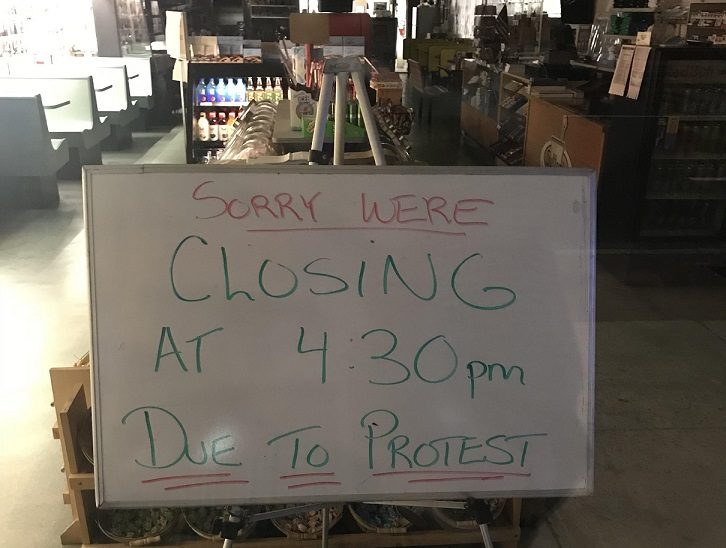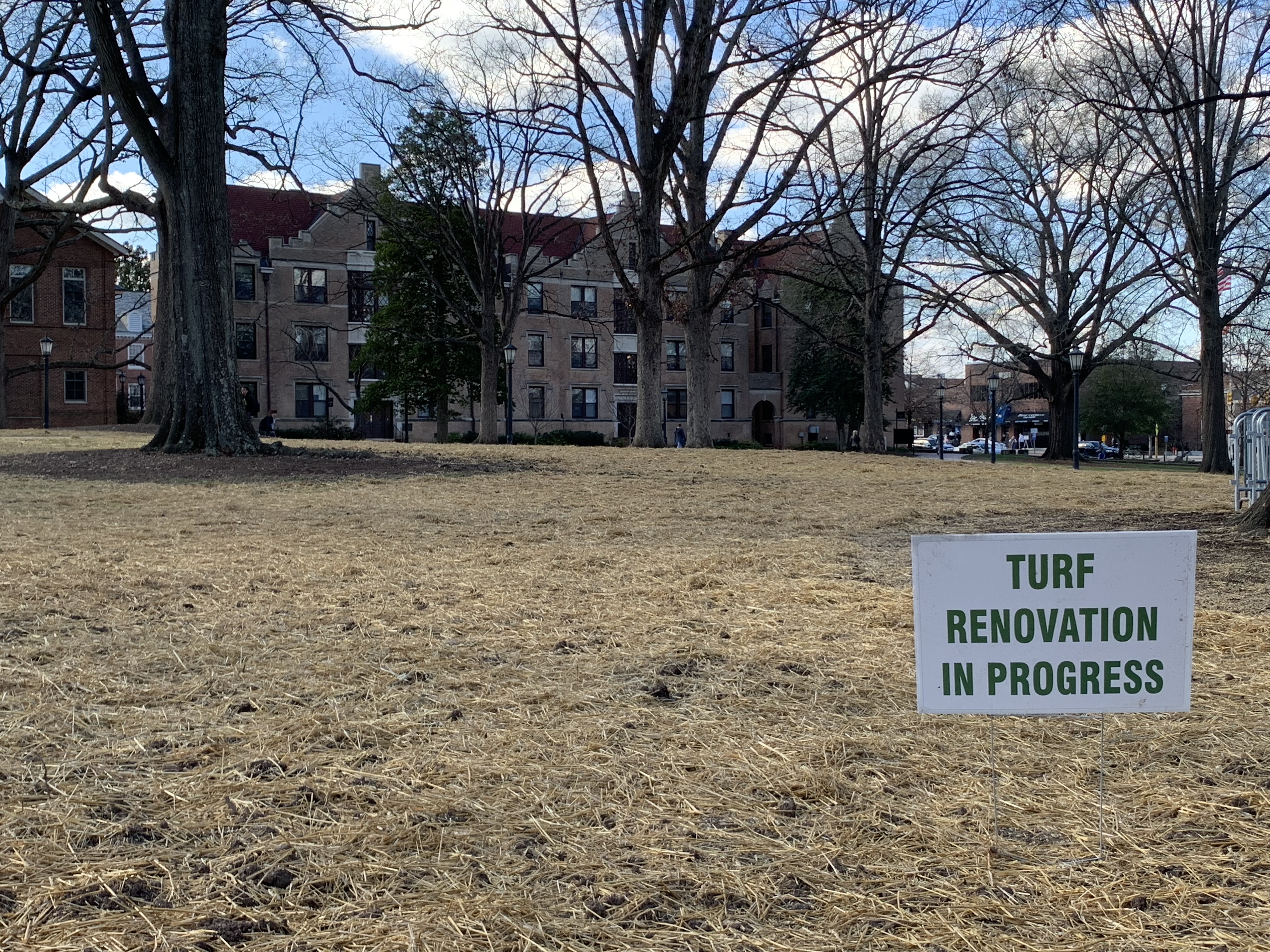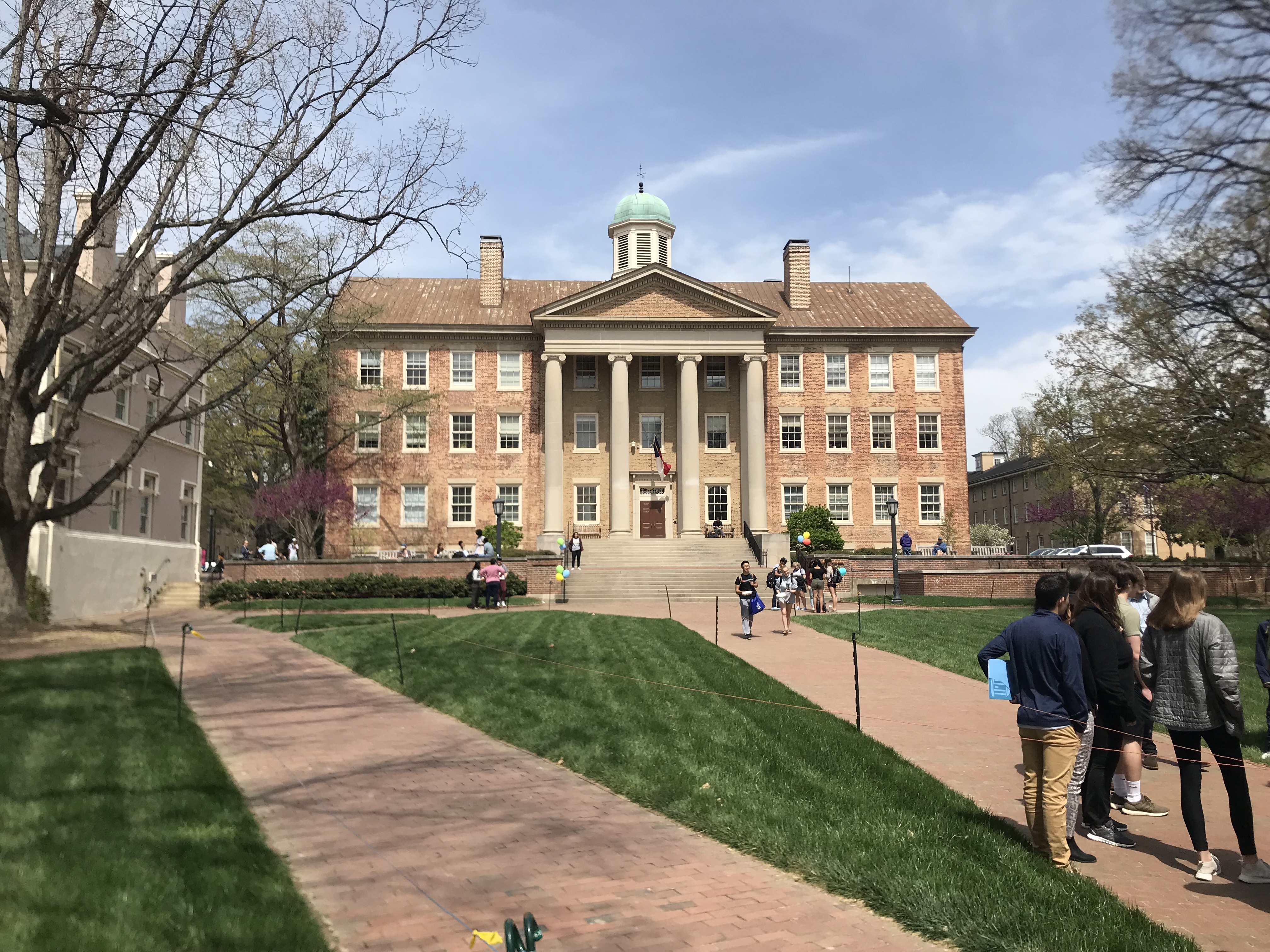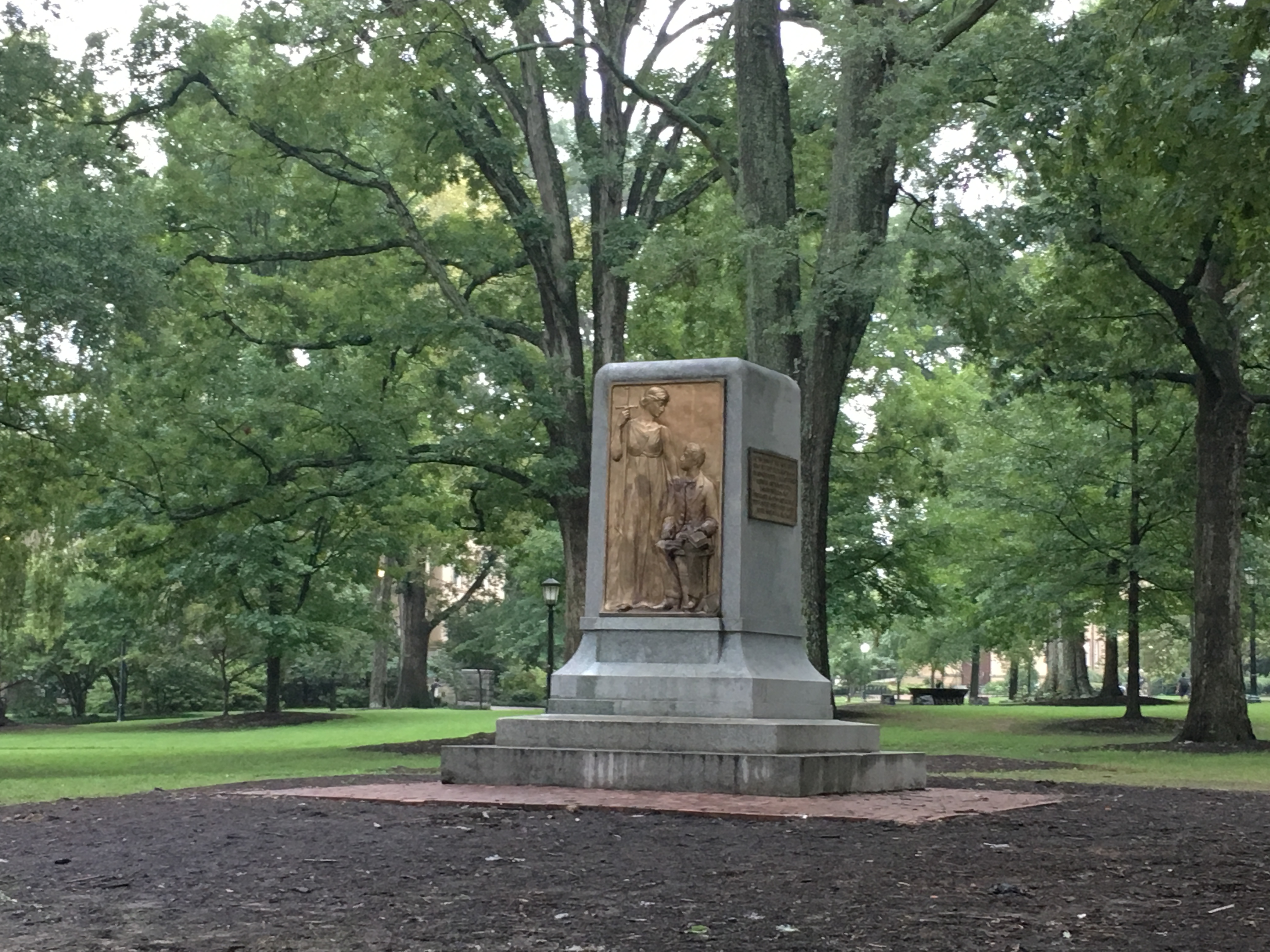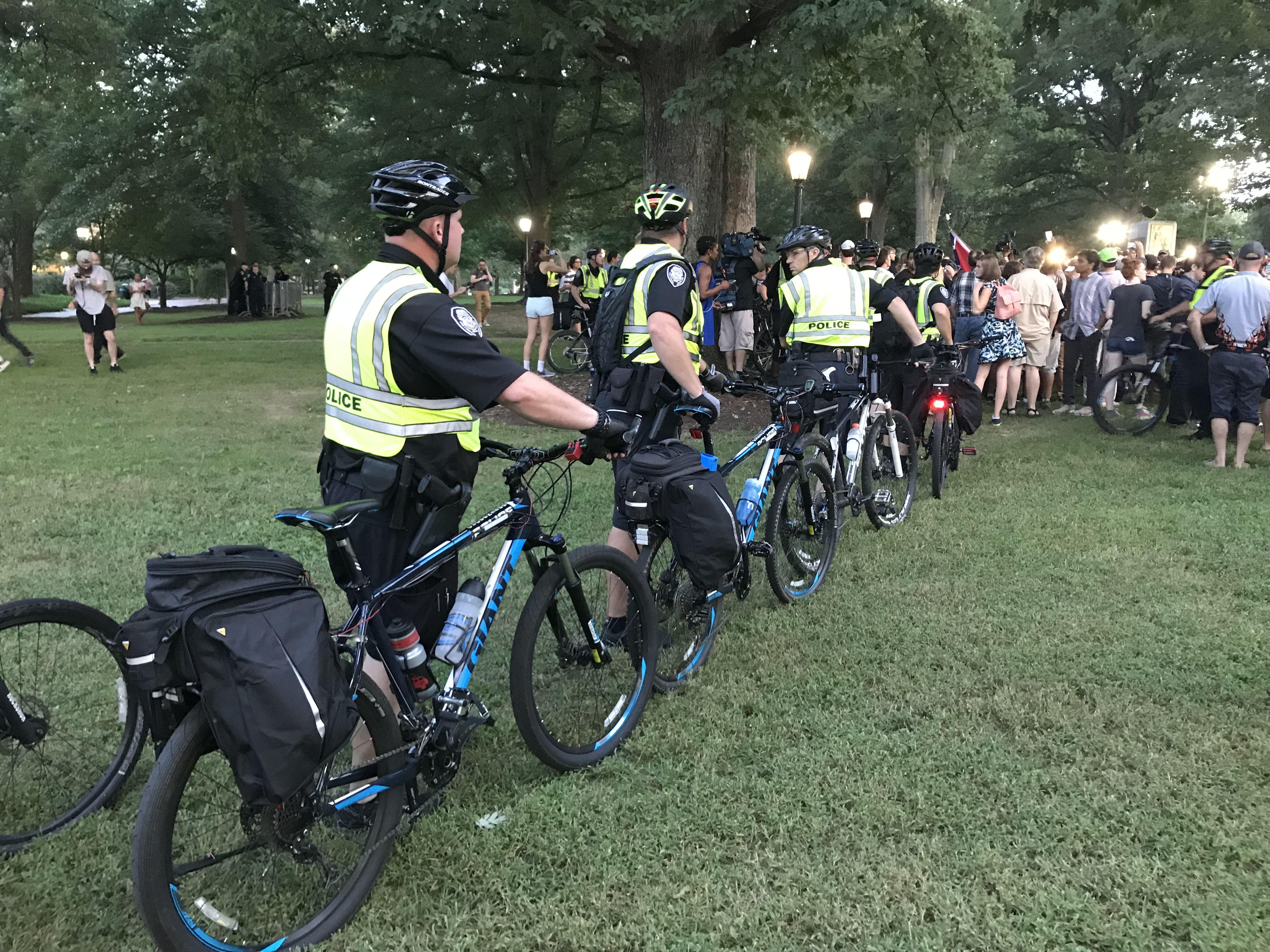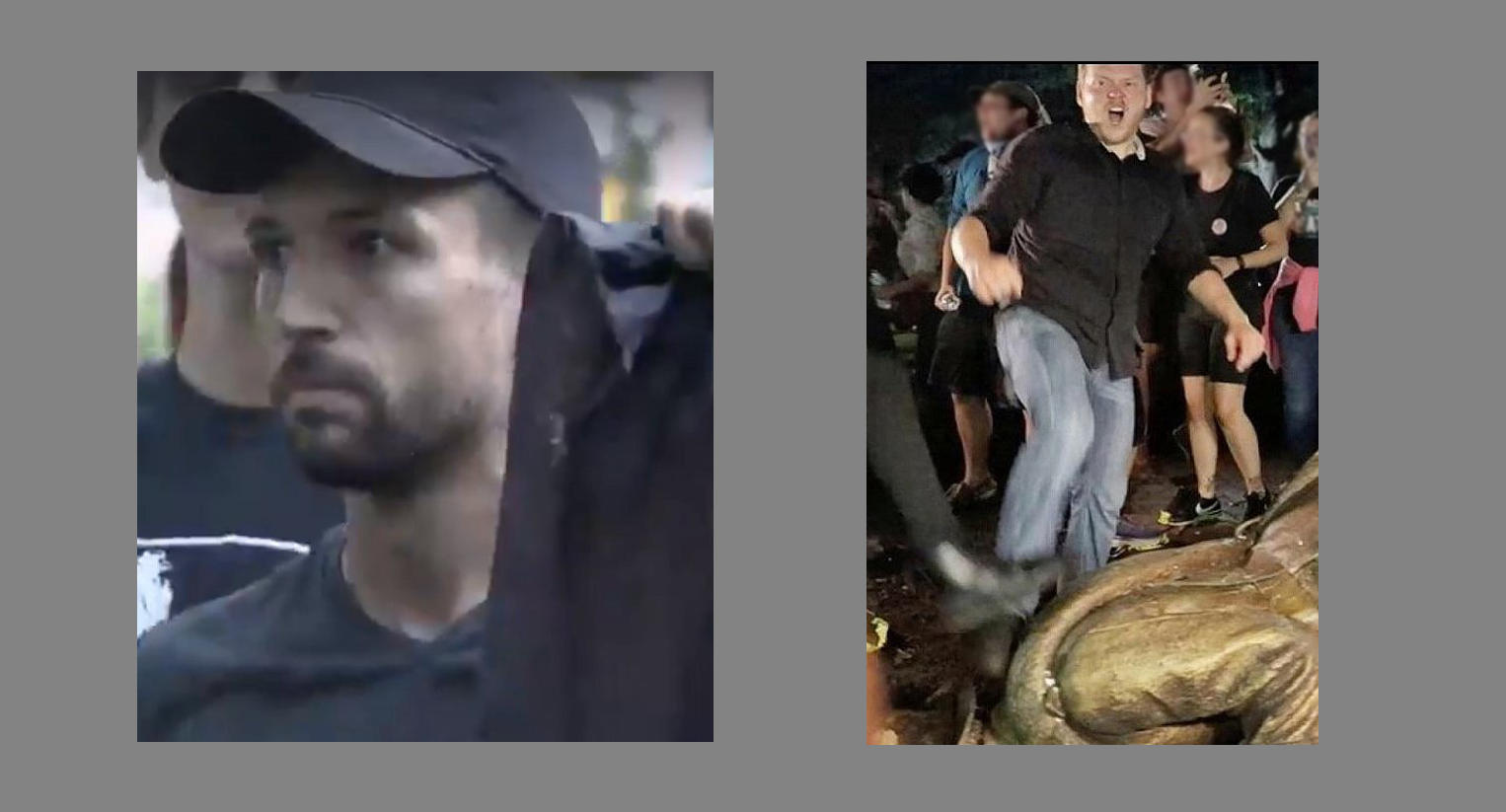Permanently relocate the Confederate monument known as Silent Sam from the UNC – Chapel Hill campus. That’s the message sent to university leadership in separate letters last week from the Chapel Hill – Carrboro Chamber of Commerce and the Chapel Hill Interfaith Clergy.
The letter from the chamber touts three reasons for its request, including safety, the community reputation and the business impact. Chapel Hill Mayor Pam Hemminger recently told WCHL that she is concerned about the impact recent rallies have had on small businesses downtown.
“When people avoid downtown or are blocked from getting downtown, it affects our businesses downtown,” Chapel Hill Mayor Pam Hemminger recently said on The Aaron Keck Show.
The chamber letter estimates a loss of more than $189,000 in retail sales and more than $10,000 in lost wages for each event similar to what happened late last month where the university and town encouraged everyone to stay away from downtown due to rallies.
“This financial impact is far more painful when the protests coincide with peak business days such as back-to-school weekends or Thursday evenings, on which downtown business depends,” the chamber letter reads.
Hemminger said safety is paramount, which does in some cases require the warning to avoid downtown.
“We hate telling people not to come downtown,” Hemminger said. “That’s never our goal. But at the end of the day, the number on goal [is to] keep them safe.”
The letter from the clergy says that some of its members differ on whether they support how the monument was pulled down by protesters last month. But all of the members agree that “returning Silent Sam to its previous location furthers the goal of those who originally put it there: venerating white supremacy, and denigrating people of color.”
The letter said:
“There are monuments to honor fallen soldiers, and there are monuments to causes and beliefs. Those two purposes are entwined and embodied in Silent Sam. We support efforts to establish monuments in memory of all soldiers and veterans; we also believe that monuments created to idealize and promote white supremacy deny the humanity of people of color generally, and African Americans specifically.”
Overall, Hemminger said the town remained concerned about any development where the monument would be returned to McCorkle Place, where it stood for more than 100 years fronting Franklin Street.
The statue is “a public safety nightmare, as far as we’re concerned,” Hemminger said. “It doesn’t represent our town values.”
The UNC System Board of Governors directed the UNC – Chapel Hill Board of Trustees and Chancellor Carol Folt to “develop and present to the Board of Governors a plan for the monument’s disposition and preservation.” That plan is now due to the Board of Governors in mid-November.

